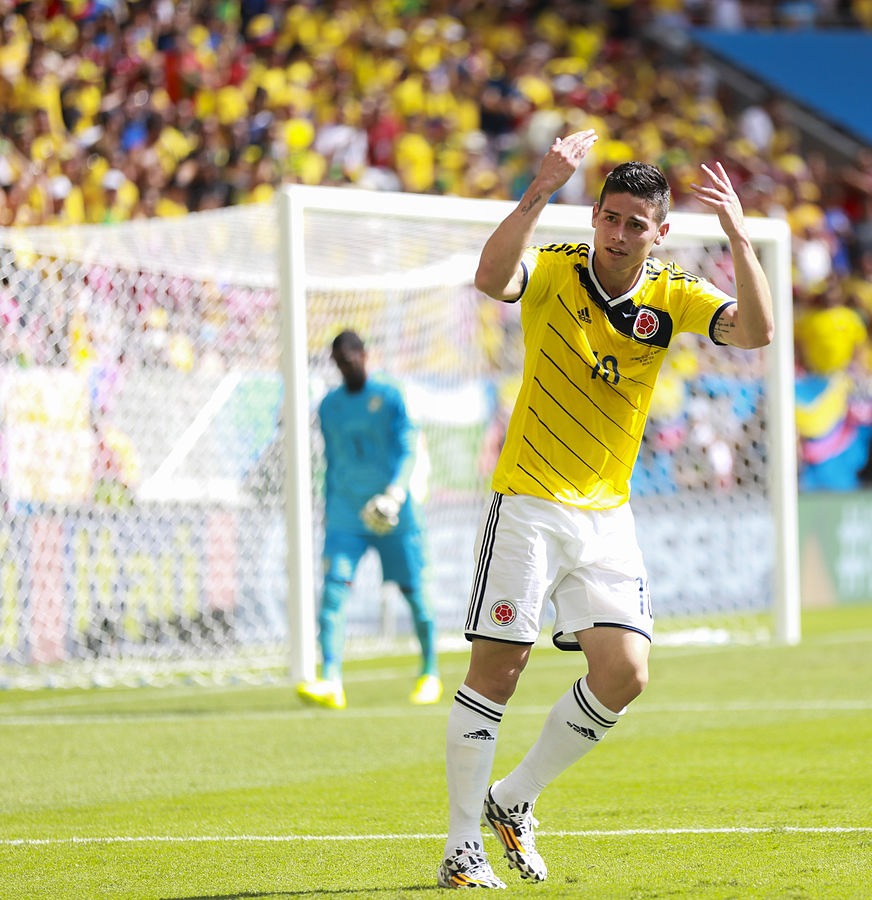Colombia’s footballing success is owed to Escobar’s cartels
Followers of modern Colombian football are likely to conjure up the likes of Radamel Falcao and James Rodríguez as the nation’s most successful players. Looking back to the 1990s – the golden era of Colombian football – people are likely to remember the scorpion-kicking René Higuita and Carlos Valderrama.
Most lovers of football with a vague interest in Colombian players are probably oblivious to the incredibly interesting and dangerous roots of the country’s clubs and players. What many of these fans don’t know is that the roots of Colombian football’s contemporary triumphs lie firmly in the rise of the nation’s cocaine cartels in the 1980s and 1990s.
Throughout the 80s and 90s across South America, there was a rise in competing cartels who used violence, money and drugs to battle for control of the drug creation and distribution industry into the US. Nowhere was this more prevalent than in Columbia. As cartel rule became a daily presence on the streets of Medellín, Bogota and Cali, football was plucked from its insignificant roots to being the most popular sport in the country.
Drug trafficker Miguel Rodriguez Orejuela sponsored the America de Cali
The Colombian national football team before 1980 had faded into obscurity; its players had all but disappeared from the world stage. This all changed when international drug lord and narcoterrorist Pablo Escobar decided to pump money into Atletico Nacional in Medellin. Rival drug trafficker Miguel Rodriguez Orejuela sponsored the America de Cali, Nacional’s Premier League rivals.
Drug money built the clubs, fields and opportunities for Colombian players. All of this was paid for by the cartels’ questionable dealings, kidnappings and briberies. While many Colombians may look back at this time as the pinnacle of instability and violence in South America, it is undoubtable that Colombian football would not be what it is today without the input of the cartels.
In 1989, Atletico Nacional became the first Colombian team to win the Copa Libertadores, South America’s equivalent of the Champions League. As a result, Los Verdolagas qualified for the Club World Cup, halting a 28-year spell away from the competition.
Atletico manager Francisco Maturana himself admitted that drug money helped to improve Colombian football, while also preventing Colombia’s most talented players from travelling overseas to play for other teams.
Football provided cartels with an easy route for money laundering schemes
It’s important that we don’t romanticise the leaders of the cartels as poverty-stricken heroes who acted as modern-day robin hoods. However, it is undeniable that they helped many Colombians get out of poverty and provided them a gateway to a successful career in the beautiful game.
Football provided the cartels with an easy route for their money laundering schemes, many clubs increased ticket receipts and inflated transfer fees to conceal drug money. When Pablo Escobar was imprisoned in La Catedral, the iconic prison that he built himself, he invited world-class players such as Diego Maradona to play with his prison football team.
Ultimately, the violence that encircled Colombia’s most dangerous cartels led to the downfall of the nation’s football clubs. In 1989, referee Alvaro Ortega was killed after officiating a game between Independiente Medellín and America de Cali. As a result, Colombia were banned from participating in the 1990 World Cup.
It wasn’t until the 2010s that Colombian recovered its reputation
In 1993, Andres Escobar was murdered after scoring an own-goal in an international fixture against the United States. Escobar’s death resulted in the downfall of the Columbian national team, sparking a mass exodus from the team’s roster.
It wasn’t until the 2010s that Colombian football was able to recover its reputation. In 2014, it began to grow in popularity as the team made the quarter final of the World Cup. While Colombia’s success in recent years is admirable, it is undeniable that without the input of Escobar and the Cali cartel, Colombian football never would have enjoyed its twentieth-century heyday.

Comments